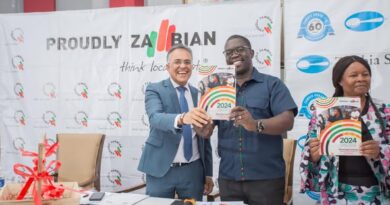Zambia Leads $10.8M Regional Agricultural Initiative
Zambia has taken the lead in launching a US$10.8 million regional agricultural initiative designed to boost food security and strengthen trade across Southern Africa.
The four-year programme, known as Support Towards the Operationalisation of the SADC Regional Agricultural Policy (STOSAR II), will involve all 15 Southern African Development Community (SADC) member states. It is funded by the European Union (EU) with technical support from the Food and Agriculture Organization (FAO) and the SADC Secretariat.
Speaking at the official launch, Ministry of Agriculture Permanent Secretary for Technical Services, John Mulongoti – represented by Dr Kenneth Msiska, Director of Plant Quarantine and Phytosanitary Service (PQPS) – said the initiative would modernise farming practices, enhance trade, and build climate resilience.
He noted that inclusive opportunities for women and youth would be prioritised, while the project would also strengthen agricultural data systems and improve plant and animal health services to meet export standards.
“By strengthening the capacity of SADC Member States to generate, manage and share reliable agricultural statistics, STOSAR II will ensure that policies and investments across the region are evidence-based and impactful,” Mr Mulongoti said.
The initiative will also enhance food and nutrition security monitoring and support the creation of more competitive, climate-resilient food systems.
Reflecting on the success of the first phase of STOSAR (2013–2024), Mr Mulongoti said Zambia had already benefited through the development of crop pest management strategies, upgraded veterinary diagnostic services, capacity-building programmes, and improvements in digital agricultural data systems.
FAO National Coordinator, Rhoda Mukuka, said STOSAR II would enhance access to regional and international markets by tackling pests and diseases, strengthening food security tracking, and building inclusive value chains.
She emphasised that the success of the project hinges on collaboration. “Partnerships between government agencies, farmers, the private sector, civil society, and international partners are vital for ensuring lasting impact,” Ms Mukuka said.



